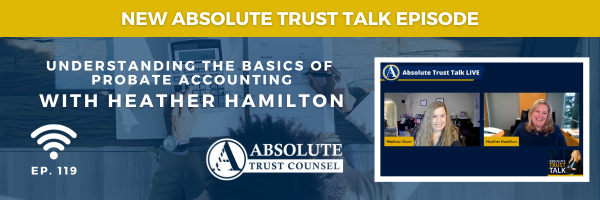If you’re someone who is serving in the role of trustee, executor, conservator, or guardian, acting as a personal representative for someone’s estate in California, did you know that the state has specific guidelines for probate accounting? According to section 16062, the California probate code requires representatives to provide an accounting at least once a year. The purpose is usually…










